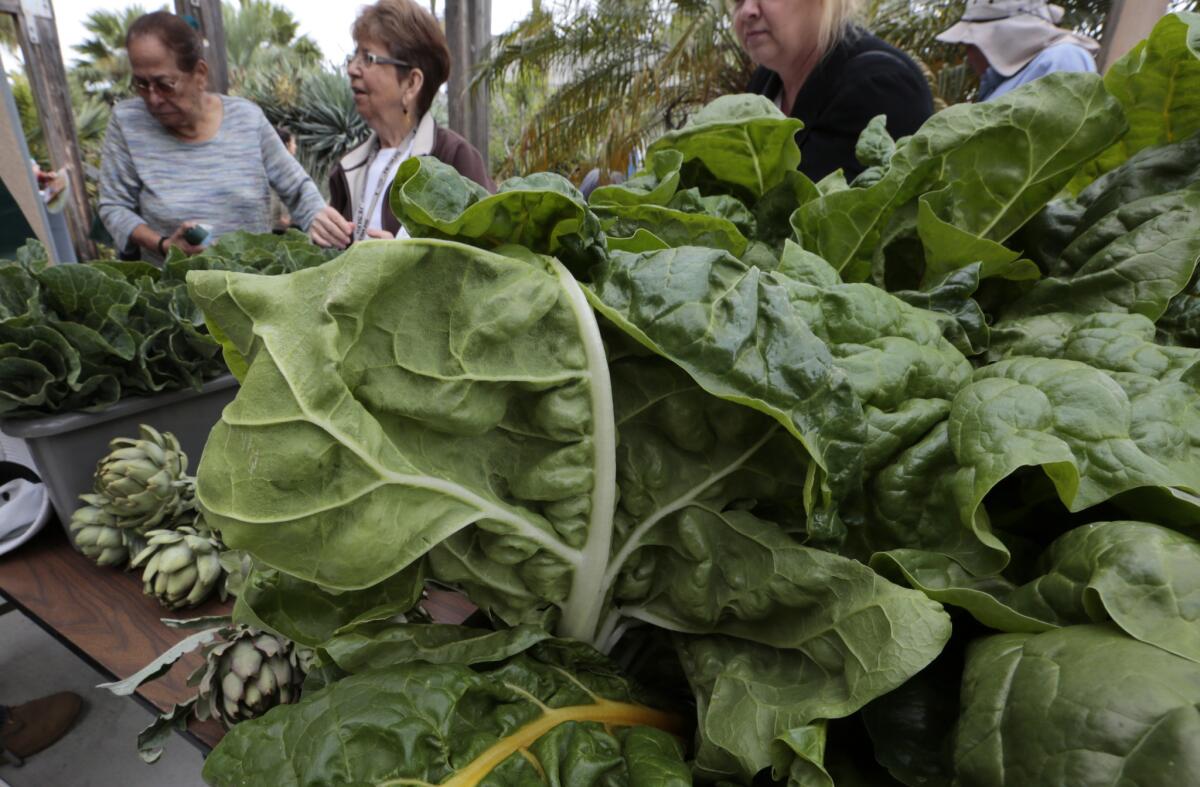Tomato garden tax break? Backers say it would pay off in better health

Community garden members sell their vegetable during Earth Day celebrations at the Growing Experience Urban Farm in Long Beach in April. L.A. County supervisors want to encourage more community gardening by establishing tax breaks for property owners who use vacant lots to grow crops.
Los Angeles County officials want to give tax breaks to property owners who turn vacant lots into community gardens, a bid to reduce urban blight and give more people access to fresh produce.
The county Board of Supervisors took a first step Tuesday toward implementing a state law that allows local governments to create “urban agriculture incentive zones,” lowering taxes on plots of 3 acres or less if the owners agree to dedicate them to growing food for at least five years.
The Los Angeles County assessor’s office has determined that 56,950 parcels throughout the county could be eligible, including 7,991 in unincorporated areas. For properties located in cities, the local city council would also need to vote to adopt the program.
Supervisor Mark Ridley-Thomas, who proposed the program, said it “seeks to provide a carrot -- literally and figuratively” to property owners and will “increase the amount of healthy fruits and vegetables grown within urban areas while reducing the number of vacant lots that often become blighted.”
Community gardeners and advocates for access to healthy food praised the move.
“The creation of an urban agricultural incentive zone will help address one of the biggest obstacles to ... community food growing efforts, and that’s access to land,” said Francesca de la Rosa, a board member with Los Angeles Food Policy Council who also works for nonprofit affordable housing developer Women Organizing Resources, Knowledge and Services.
Final details of the plan still need to be worked out, including the boundaries of the zone and a possible cap on the tax cuts. Without that, the county assessor’s office estimated that the measure could lead to property tax income losses of $6.7 million to $13.3 million if 5 to 10% of eligible properties take advantage of the program.
Ridley-Thomas said lost property tax revenue would be offset by “anticipated public health, environmental, quality of life and economic benefits for the participants and surrounding communities” and that the creation of community gardens would raise property values for neighbors.
Follow Abby Sewell on Twitter at @sewella for more county news.
ALSO:
L.A. to declare ‘state of emergency’ on homelessness, commit $100 million
Sorority identifies UCLA student found dead in burning Westwood apartment
USC student president says frat member shouted racial epithet, threw drink at her
More to Read
Sign up for Essential California
The most important California stories and recommendations in your inbox every morning.
You may occasionally receive promotional content from the Los Angeles Times.











